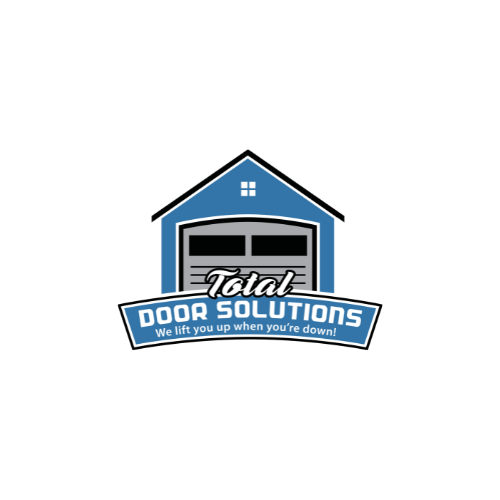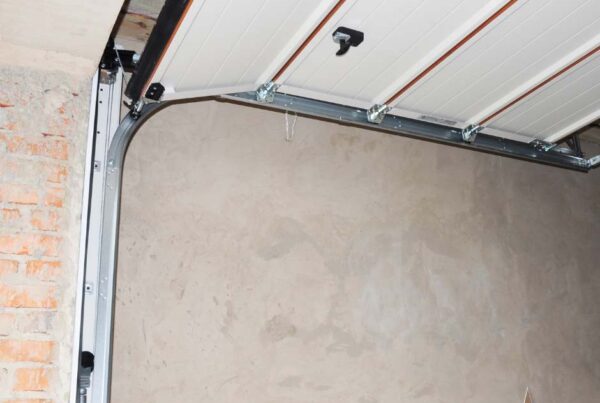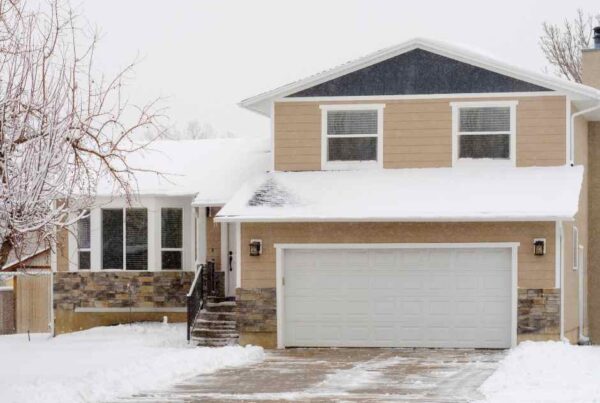Residential vs Commercial Garage Doors differ in more ways than just appearance—they’re built for entirely different functions, levels of durability, and safety needs. Whether you’re a homeowner upgrading your garage or a business owner needing dependable access for your facility, choosing the right type of door is key. This guide will help you understand the most important differences, so you can select the best fit for your property.
From size and material to function and cost, understanding how these two categories differ can help you find a solution that’s built for your specific needs. Let’s take a closer look at what sets them apart.
Why Residential vs Commercial Garage Doors Matter
Garage doors play a critical role in both residential and commercial spaces, but their requirements are very different. Residential garage doors are built for daily personal use—usually for one or two vehicles and occasional access. Commercial doors, on the other hand, are designed for frequent, high-volume use in business settings like warehouses, service centers, and retail storefronts.
Understanding the differences helps you choose a door that fits how you’ll use it. A door that works well for a home likely won’t meet the demands of a commercial facility, and installing the wrong type can lead to premature wear, safety issues, or unnecessary costs.
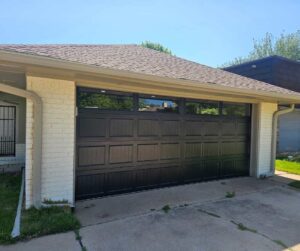
Size and Structure in Residential vs Commercial Garage Doors
One of the biggest differences between residential and commercial garage doors is their size and structural design. Residential doors are typically built to fit one or two cars and operate in a standard garage space. Commercial garage doors, however, are much larger and built for wider, taller openings to accommodate delivery trucks, forklifts, or high-clearance vehicles.
Common Size Differences:
- Residential:
- Width: 8 to 16 feet
- Height: 7 to 8 feet
- Thickness: Usually lighter materials like aluminum or steel
- Commercial:
- Width: 12 to 24+ feet
- Height: 12 to 32 feet
- Reinforced for strength, often includes insulation and thicker panels
This difference in size means commercial doors require stronger hardware, higher-torque openers, and more precise installation.
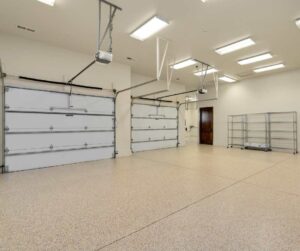
Materials and Durability of Residential vs Commercial Garage Doors
The material used in a garage door impacts everything from durability to insulation and appearance. Residential and commercial garage doors are made from many of the same materials, but their construction and performance expectations are very different.
Residential Garage Door Materials:
- Steel: Most popular for its balance of durability, cost, and appearance
- Wood: Chosen for its natural look and curb appeal (though it requires more maintenance)
- Aluminum & Glass: Lightweight, modern, and often used for custom designs
Commercial Garage Door Materials:
- Galvanized Steel: Durable, low-maintenance, and built to withstand heavy daily use
- Aluminum: Used in some specialty applications, especially in storefronts
- Insulated Steel Panels: Help with temperature control and energy efficiency in warehouses or loading docks
Commercial doors are built to withstand far more wear and tear. They’re reinforced for security, often insulated, and can handle hundreds of open/close cycles a day.
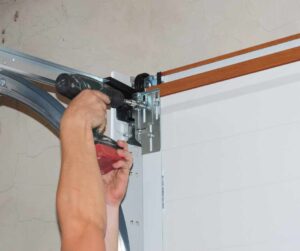
Residential vs Commercial Garage Door Features and Functionality
How a garage door functions—and what it’s equipped with—can vary significantly between residential and commercial use. Both types can include modern features, but they’re built for different performance demands.
Residential Garage Door Features:
- Automatic openers with remote controls
- Smart home integration (Wi-Fi, smartphone apps, voice assistants)
- Quiet operation (belt drives or insulated panels)
- Keypads and motion sensors for added convenience
Residential doors focus more on ease of use, comfort, and aesthetic upgrades.
Commercial Garage Door Features:
- Heavy-duty openers with higher cycle ratings
- Manual or motorized options depending on the facility
- Security upgrades like rolling code technology and reinforced locks
- High-speed operation for loading docks or logistics centers
Many commercial properties also rely on specialty openers, like jackshaft or trolley openers, to support larger, heavier doors.
Design and Appearance of Residential vs Commercial Garage Doors
The look of a garage door plays a big role in curb appeal for residential properties. For commercial spaces, the design is often more about function—but that doesn’t mean appearance is off the table.
Residential Garage Doors:
- Designed to match the home’s exterior and architectural style
- Available in a wide variety of panel styles, window options, and colors
- Decorative hardware, faux wood finishes, and glass inserts are common
Commercial Garage Doors:
- Focused on durability, visibility, and function over decorative features
- Many come in neutral tones or industrial finishes
- Options like glass-paneled doors or custom colors are available for storefronts and customer-facing facilities
While residential garage doors aim to complement the home’s style, commercial doors are usually chosen for their performance and efficiency.
Installation and Cost Differences in Residential vs Commercial Garage Doors
The cost and complexity of installing a garage door can vary widely depending on whether it’s residential or commercial. Both require experienced technicians, but the scale and structure of commercial installs often make them more involved.
Residential Garage Door Installation:
- Typically lower cost due to smaller size and simpler setup
- Most installations are completed within a single day
- Costs vary based on material, design, and opener type
- Less reinforcement required for framing and hardware
Commercial Garage Door Installation:
- Higher cost due to larger size, heavier materials, and advanced opener systems
- May require special permits or custom framing
- Often involves additional equipment like high-torque motors or steel guides
- Installation time may extend over multiple days for larger facilities
Investing in professional installation helps prevent long-term issues and ensures smooth operation from day one.
How to Choose Between Residential vs Commercial Garage Doors
Whether you need a door for your home or business, understanding the difference between residential and commercial garage doors can help you avoid unnecessary expenses and performance issues. Each type is designed with different priorities in mind, so selecting the right one starts with understanding how you’ll use it.
Ask yourself:
- How often will the door open and close each day?
- Do you need quiet operation or high-speed performance?
- Is curb appeal or industrial durability more important?
- What level of security or insulation do you need?
If you’re still not sure which option fits your property best, the team at Total Door Solutions is here to help.
Ready for a New Garage Door? Let’s Talk
Whether you’re replacing a residential garage door or planning a commercial installation, we offer expert guidance and professional service across the Oklahoma City metro.
📞 Call or Text Us: (405) 822-3113
📧 Email: totaldoorsolutions88@gmail.com
🌐 Website: www.totaldoorsolutionsok.com
📍 Google Business Profile: Total Door Solutions on Google
📘 Facebook: facebook.com/totaldoorsolutionsok
📷 Instagram: instagram.com/totaldoorsolutionsok
